Informationen zur Zeitschrift
Startseite » Programm » IJREE 2-2019 | Extended Education and Social Inequality
IJREE 2-2019 | Extended Education and Social Inequality
Erscheinungsdatum : 11.05.2020
0,00 € - 35,00 € inkl. MwSt.
Inhalt
IJREE – International Journal for Research on Extended Education
2-2019: Extended Education and Social Inequality
Sang Hoon Bae: Editor’s Preface
Special Section
Sang Hoon Bae / Ludwig Stecher: Extended Education and Social Inequality: An Introduction
Sergey Kosaretsky / Ivan Ivanov: Inequality in Extracurricular Education in Russia
Steve R. Entrich / Wolfgang Lauterbach: Shadow Education in Germany: Compensatory or Status Attainment Strategy? Findings from the German LifE Study
Sang Hoon Bae / Eunwon Cho / Bo-Kyung Byun: Stratification in Extended Education Participation and its Implications for Education Inequality
General Contributions
Linnéa Holmberg: ’Bursting With Activities‘: Impression Management as Edu-Business in School-Age Educare
Liza Haglund: The Need for Care: A Study of Teachers’ Conceptions of Care and Pupils’ Needs in a Swedish School-Age Educare Setting
DEVELOPMENTS in the Field of Extended Education
Sabine Maschke / Verena Wellnitz: The Method of the Socio-Spatial Map for the Reconstruction of Transformative Educational Processes in Educational Contexts
Download of Table of Contents / Inhaltsverzeichnis herunterladen
Download of single articles (Open Access/fee-based): ijree.budrich-journals.com
You can register here for the IJREE alert.
Einzelbeitrag-Download (Open Access/Gebühr): ijree.budrich-journals.com
Sie können sich hier für den IJREE-Alert anmelden.
Zusätzliche Information
| Verlag | |
|---|---|
| ISSN | 2196-3673 |
| eISSN | 2196-7423 |
| Jahrgang | 7. Jahrgang 2019 |
| Ausgabe | 2 |
| Erscheinungsdatum | 11.05.2020 |
| Umfang | 96 |
| Sprache | Englisch |
| Format | 17 x 24 cm |
| DOI | |
| Open Access-Lizenz | |
| Homepage |
Autor*innen
Schlagwörtercare, care ethics, caring practices, documentary method, educational contexts, educational equality, extended education, extracurricular activities, Germany, impression management, life study, participation, private tutoring, pupils needs, Russia, school-age educare, shadow education, social inequality, socio-spatial map, stratification
Abstracts
Inequality in Extracurricular Education in Russia (Sergey Kosaretsky, Ivan Ivanov)
The article considers the structure of the inequality of access to extra-curricular education in Russia and factors influencing it. Among the main barriers are the territorial context, urban and rural education, the families’ socioeconomic status and cultural capital. It is also showed that the factors of the inequality are also produced with strong spatial (interregional, inter-municipal) differentiation; the sector’s peculiarities of regulation and policy. Despite active measures of the state policy in increasing participation coverage of in extracurricular education and activities, the questions of social differentiation’s risks remain not solved. Tools for identifying risk categories have not been developed. Key words: extracurricular education in Russia, extracurricular activities, inequality in extracurricular education
» Download Single Contribution Free of Charge (Budrich Journals) / Einzelbeitrag kostenlos herunterladen (Budrich Journals)
Shadow Education in Germany: Compensatory or Status Attainment Strategy? Findings from the German LifE Study (Steve R. Entrich, Wolfgang Lauterbach)
In Germany we observe a strong increase in the enrolment in shadow education (‘Nachhilfe’) over the last two decades. To explain this development we draw on social reproduction theories identifying two strategies: (1) families seek competitive advantages for their children to maintain or achieve an advantageous education level (status attainment strategy); and (2) families seek performance improvement for their low performing children in order to meet the high demands in the pursuit of the highest school diploma (compensatory strategy). To test our theoretical ideas, we estimate regression models using data from the 2012 German LifE study. We find that shadow education is primarily used by disadvantaged educational strata to deal with higher demands in school. We conclude that the increased investment in Nachhilfe is an unintended but not yet negative outcome of educational expansion and recent educational reforms in Germany. Keywords: shadow education, private tutoring, Nachhilfe, social inequality, Germany
» Download Single Contribution Free of Charge (Budrich Journals) / Einzelbeitrag kostenlos herunterladen (Budrich Journals)
Stratification in Extended Education Participation and its Implications for Education Inequality (Sang Hoon Bae, Eunwon Cho, Bo-Kyung Byun)
This study identified subgroups of elementary students based on similar patterns of participation in four different types of extended education in Korea. The study also investigated relationships between student patterns of extended education participation and their various demographic and socioeconomic characteristics, including residential location, parental education, and family income level. To achieve these aims, the study used latent profile analysis and logistic regression on a dataset of 18,186 students from 786 elementary schools provided by Statistics Korea. Results reveal five distinctive subgroups of students in terms of extended education participation: afterschool academic program users, shadow education users, moderate afterschool academic program users, ordinary users, and talent development seekers. Results also show that student socioeconomic and demographic characteristics are strongly associated with their classification into the above-mentioned subgroups. These findings signal the possibility that “educational stratification” based on student socioeconomic background may be occurring in the area of extended education. Keywords: extended education, participation, stratification, educational equality
» Download Single Contribution Free of Charge (Budrich Journals) / Einzelbeitrag kostenlos herunterladen (Budrich Journals)
’Bursting With Activities‘: Impression Management as Edu-Business in School-Age Educare (Linnéa Holmberg)
Starting from an understanding of contemporary society as occupied with a dominant trend in image-boosting, the study explores how school-age educare centers engage in edu-business when promoting themselves through self-presentations on their websites. Using a qualitative method with an analytical attention directed towards unexpected angles, these self-presentations are problematized in terms of discursive impression management and with a focus on how messages are communicated by using different discursive resources to make the presentations trustworthy and selling. The edubusiness logic found on the websites is not primarily about competition between different school-age educare centers, but is instead about competition between compulsory school and school-age educare, as well as the choice to participate or not in the education offered in the school-age educare centers. Keywords: websites, School-Age Educare, Edu-Business, Image-Boosting Business
» Download Single Contribution Free of Charge (Budrich Journals) / Einzelbeitrag kostenlos herunterladen (Budrich Journals)
The Need for Care: A Study of Teachers’ Conceptions of Care and Pupils’ Needs in a Swedish School-Age Educare Setting (Liza Haglund)
This paper presents the findings of a study investigating School-Age Educare (SAE) teachers’ conceptions of care and care practices and how these conceptions of care and actual practices relate to pupils’ needs. The study is based on observations and interviews with two experienced SAE teachers and one young teacher in a Swedish SAE centre, working with pupils between 9–11 years old. The study was undertaken between March 2018 and April 2019, and provides insight into different forms of care and caring practices. The study also shows that pupils nowadays, according to the teachers, have needs that were previously met by their families. The teachers’ conceptions of the importance of a well-functioning group and pupils’ needs to be able to share their feelings, dreams and worries and to value each other’s differences were also salient findings of the study. Keywords: School-Age Educare, conceptions of care, caring practises, pupils’ needs, care ethics
» Download Single Contribution Free of Charge (Budrich Journals) / Einzelbeitrag kostenlos herunterladen (Budrich Journals)
The Method of the Socio-Spatial Map for the Reconstruction of Transformative Educational Processes in Educational Contexts (Sabine Maschke, Verena Wellnitz)
This article is concerned with the method of the socio-spatial map. It is a method that combines visual (sketches/drawings) with verbal expressions (interviews) in a triangulating manner. This process is particularly suited to empirical questions and analyses of educational contexts, processes and strategies within the framework of extended education, as they are too complex to be captured solely by a single method. Rather, educational processes require a methodical-methodological design that enables as holistic a reconstruction as possible, within the mode of language and visualization, fundamental dispositions, experiences and forms of processing (cf. Maschke, 2019). Keywords: triangulating methodology on space, educational research on space, arts-informed research, documentary method
» Download Single Contribution Free of Charge (Budrich Journals) / Einzelbeitrag kostenlos herunterladen (Budrich Journals)
Inhalt
Inhalt
IJREE – International Journal for Research on Extended Education
2-2019: Extended Education and Social Inequality
Sang Hoon Bae: Editor’s Preface
Special Section
Sang Hoon Bae / Ludwig Stecher: Extended Education and Social Inequality: An Introduction
Sergey Kosaretsky / Ivan Ivanov: Inequality in Extracurricular Education in Russia
Steve R. Entrich / Wolfgang Lauterbach: Shadow Education in Germany: Compensatory or Status Attainment Strategy? Findings from the German LifE Study
Sang Hoon Bae / Eunwon Cho / Bo-Kyung Byun: Stratification in Extended Education Participation and its Implications for Education Inequality
General Contributions
Linnéa Holmberg: ’Bursting With Activities‘: Impression Management as Edu-Business in School-Age Educare
Liza Haglund: The Need for Care: A Study of Teachers’ Conceptions of Care and Pupils’ Needs in a Swedish School-Age Educare Setting
DEVELOPMENTS in the Field of Extended Education
Sabine Maschke / Verena Wellnitz: The Method of the Socio-Spatial Map for the Reconstruction of Transformative Educational Processes in Educational Contexts
Download of Table of Contents / Inhaltsverzeichnis herunterladen
Download of single articles (Open Access/fee-based): ijree.budrich-journals.com
You can register here for the IJREE alert.
Einzelbeitrag-Download (Open Access/Gebühr): ijree.budrich-journals.com
Sie können sich hier für den IJREE-Alert anmelden.
Bibliografie
Zusätzliche Information
| Verlag | |
|---|---|
| ISSN | 2196-3673 |
| eISSN | 2196-7423 |
| Jahrgang | 7. Jahrgang 2019 |
| Ausgabe | 2 |
| Erscheinungsdatum | 11.05.2020 |
| Umfang | 96 |
| Sprache | Englisch |
| Format | 17 x 24 cm |
| DOI | |
| Open Access-Lizenz | |
| Homepage |
Produktsicherheit
Bewertungen (0)
Bewertungen
Es gibt noch keine Bewertungen.
Autor*innen
Autor*innen
Schlagwörter
Schlagwörtercare, care ethics, caring practices, documentary method, educational contexts, educational equality, extended education, extracurricular activities, Germany, impression management, life study, participation, private tutoring, pupils needs, Russia, school-age educare, shadow education, social inequality, socio-spatial map, stratification
Abstracts
Abstracts
Inequality in Extracurricular Education in Russia (Sergey Kosaretsky, Ivan Ivanov)
The article considers the structure of the inequality of access to extra-curricular education in Russia and factors influencing it. Among the main barriers are the territorial context, urban and rural education, the families’ socioeconomic status and cultural capital. It is also showed that the factors of the inequality are also produced with strong spatial (interregional, inter-municipal) differentiation; the sector’s peculiarities of regulation and policy. Despite active measures of the state policy in increasing participation coverage of in extracurricular education and activities, the questions of social differentiation’s risks remain not solved. Tools for identifying risk categories have not been developed. Key words: extracurricular education in Russia, extracurricular activities, inequality in extracurricular education
» Download Single Contribution Free of Charge (Budrich Journals) / Einzelbeitrag kostenlos herunterladen (Budrich Journals)
Shadow Education in Germany: Compensatory or Status Attainment Strategy? Findings from the German LifE Study (Steve R. Entrich, Wolfgang Lauterbach)
In Germany we observe a strong increase in the enrolment in shadow education (‘Nachhilfe’) over the last two decades. To explain this development we draw on social reproduction theories identifying two strategies: (1) families seek competitive advantages for their children to maintain or achieve an advantageous education level (status attainment strategy); and (2) families seek performance improvement for their low performing children in order to meet the high demands in the pursuit of the highest school diploma (compensatory strategy). To test our theoretical ideas, we estimate regression models using data from the 2012 German LifE study. We find that shadow education is primarily used by disadvantaged educational strata to deal with higher demands in school. We conclude that the increased investment in Nachhilfe is an unintended but not yet negative outcome of educational expansion and recent educational reforms in Germany. Keywords: shadow education, private tutoring, Nachhilfe, social inequality, Germany
» Download Single Contribution Free of Charge (Budrich Journals) / Einzelbeitrag kostenlos herunterladen (Budrich Journals)
Stratification in Extended Education Participation and its Implications for Education Inequality (Sang Hoon Bae, Eunwon Cho, Bo-Kyung Byun)
This study identified subgroups of elementary students based on similar patterns of participation in four different types of extended education in Korea. The study also investigated relationships between student patterns of extended education participation and their various demographic and socioeconomic characteristics, including residential location, parental education, and family income level. To achieve these aims, the study used latent profile analysis and logistic regression on a dataset of 18,186 students from 786 elementary schools provided by Statistics Korea. Results reveal five distinctive subgroups of students in terms of extended education participation: afterschool academic program users, shadow education users, moderate afterschool academic program users, ordinary users, and talent development seekers. Results also show that student socioeconomic and demographic characteristics are strongly associated with their classification into the above-mentioned subgroups. These findings signal the possibility that “educational stratification” based on student socioeconomic background may be occurring in the area of extended education. Keywords: extended education, participation, stratification, educational equality
» Download Single Contribution Free of Charge (Budrich Journals) / Einzelbeitrag kostenlos herunterladen (Budrich Journals)
’Bursting With Activities‘: Impression Management as Edu-Business in School-Age Educare (Linnéa Holmberg)
Starting from an understanding of contemporary society as occupied with a dominant trend in image-boosting, the study explores how school-age educare centers engage in edu-business when promoting themselves through self-presentations on their websites. Using a qualitative method with an analytical attention directed towards unexpected angles, these self-presentations are problematized in terms of discursive impression management and with a focus on how messages are communicated by using different discursive resources to make the presentations trustworthy and selling. The edubusiness logic found on the websites is not primarily about competition between different school-age educare centers, but is instead about competition between compulsory school and school-age educare, as well as the choice to participate or not in the education offered in the school-age educare centers. Keywords: websites, School-Age Educare, Edu-Business, Image-Boosting Business
» Download Single Contribution Free of Charge (Budrich Journals) / Einzelbeitrag kostenlos herunterladen (Budrich Journals)
The Need for Care: A Study of Teachers’ Conceptions of Care and Pupils’ Needs in a Swedish School-Age Educare Setting (Liza Haglund)
This paper presents the findings of a study investigating School-Age Educare (SAE) teachers’ conceptions of care and care practices and how these conceptions of care and actual practices relate to pupils’ needs. The study is based on observations and interviews with two experienced SAE teachers and one young teacher in a Swedish SAE centre, working with pupils between 9–11 years old. The study was undertaken between March 2018 and April 2019, and provides insight into different forms of care and caring practices. The study also shows that pupils nowadays, according to the teachers, have needs that were previously met by their families. The teachers’ conceptions of the importance of a well-functioning group and pupils’ needs to be able to share their feelings, dreams and worries and to value each other’s differences were also salient findings of the study. Keywords: School-Age Educare, conceptions of care, caring practises, pupils’ needs, care ethics
» Download Single Contribution Free of Charge (Budrich Journals) / Einzelbeitrag kostenlos herunterladen (Budrich Journals)
The Method of the Socio-Spatial Map for the Reconstruction of Transformative Educational Processes in Educational Contexts (Sabine Maschke, Verena Wellnitz)
This article is concerned with the method of the socio-spatial map. It is a method that combines visual (sketches/drawings) with verbal expressions (interviews) in a triangulating manner. This process is particularly suited to empirical questions and analyses of educational contexts, processes and strategies within the framework of extended education, as they are too complex to be captured solely by a single method. Rather, educational processes require a methodical-methodological design that enables as holistic a reconstruction as possible, within the mode of language and visualization, fundamental dispositions, experiences and forms of processing (cf. Maschke, 2019). Keywords: triangulating methodology on space, educational research on space, arts-informed research, documentary method
» Download Single Contribution Free of Charge (Budrich Journals) / Einzelbeitrag kostenlos herunterladen (Budrich Journals)
Das könnte Sie auch interessieren:
Verlag Barbara Budrich
- +49 (0)2171.79491-50
- info@budrich.de
-
Stauffenbergstr. 7
51379 Leverkusen
Deutschland




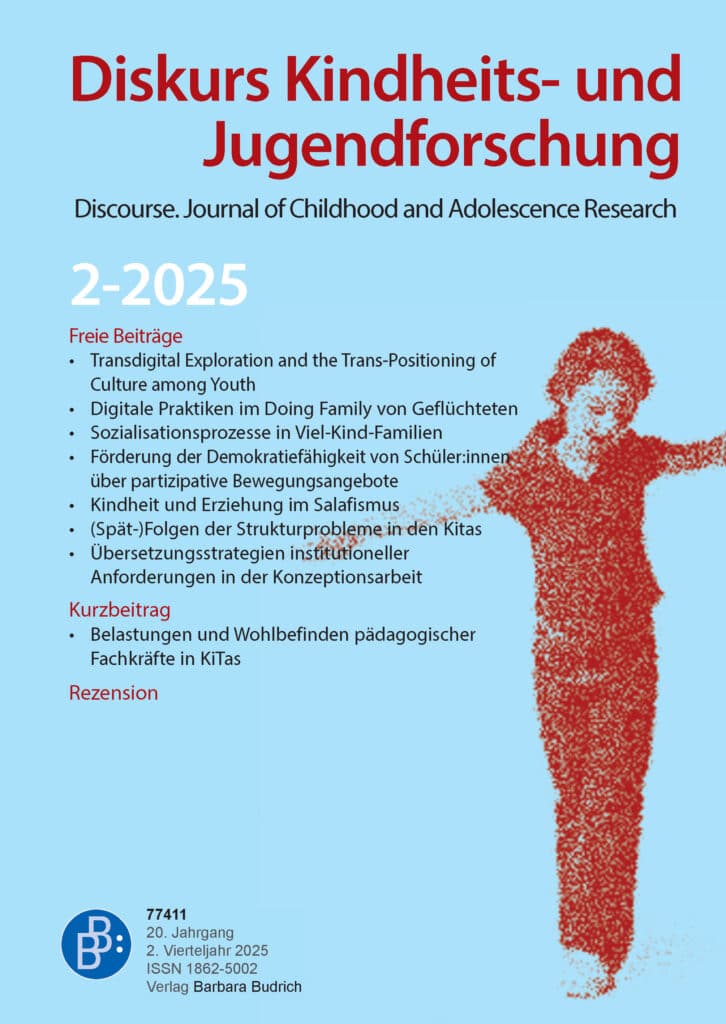
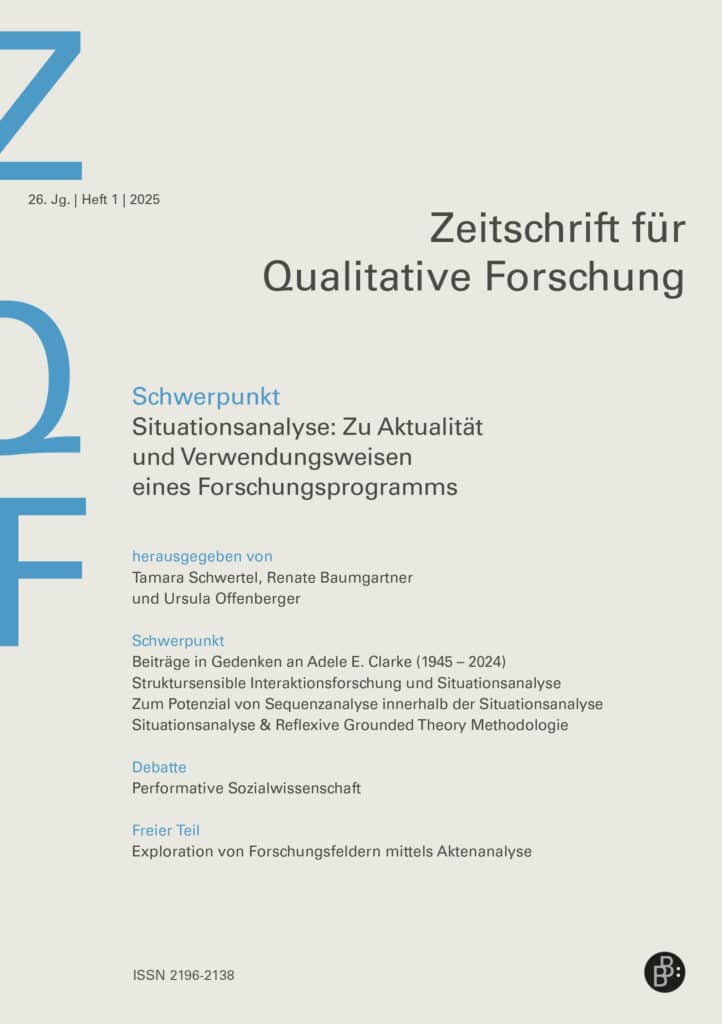
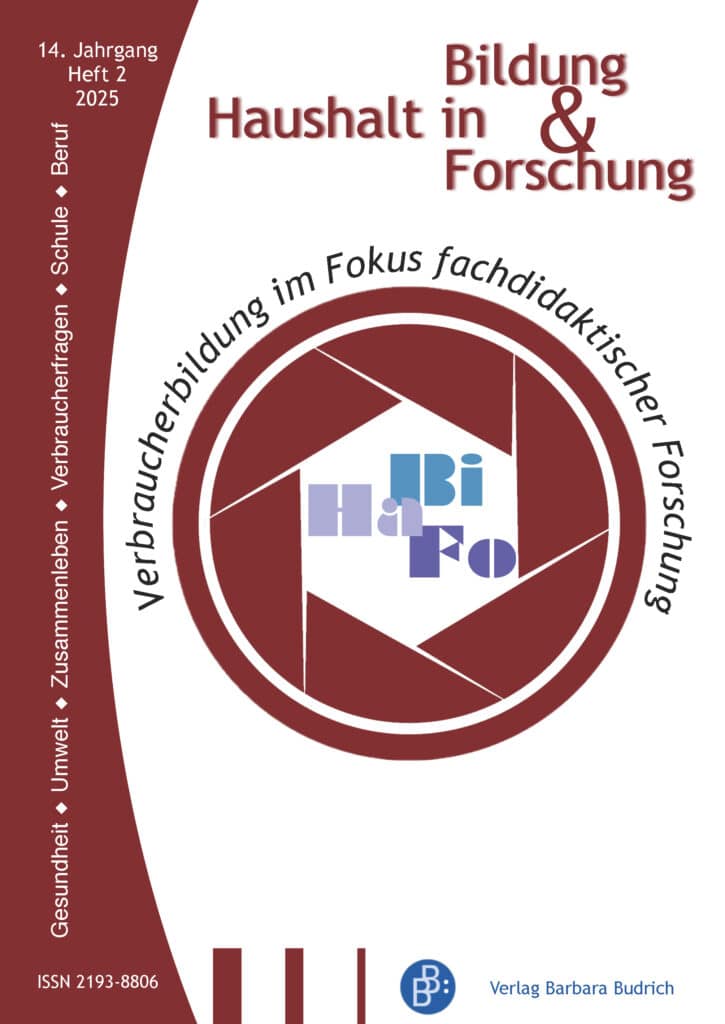
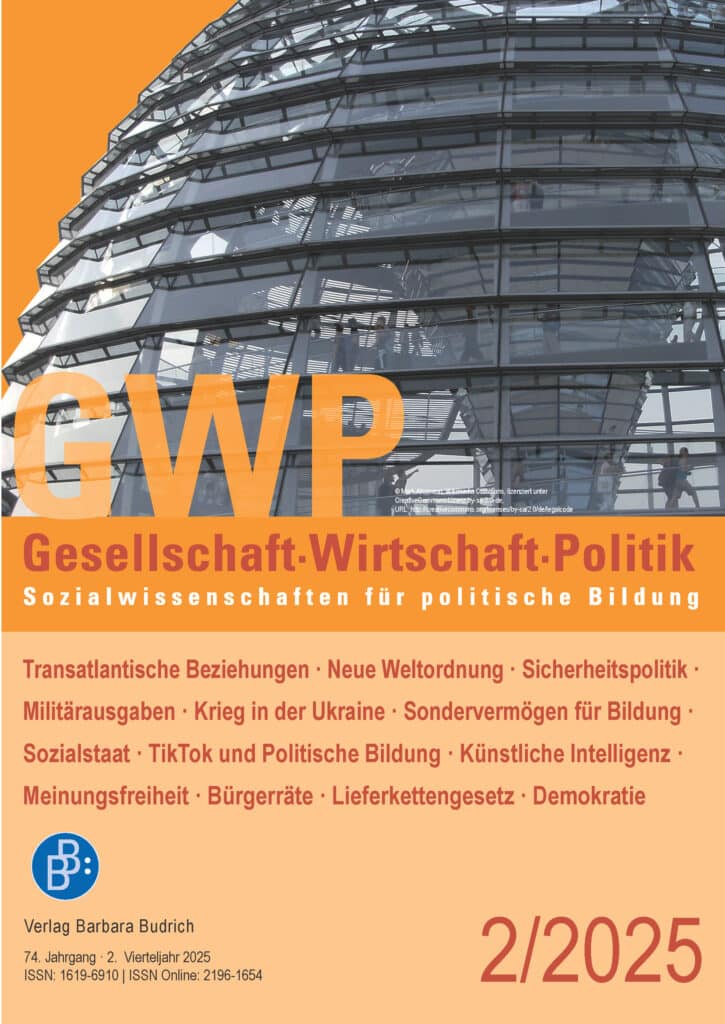
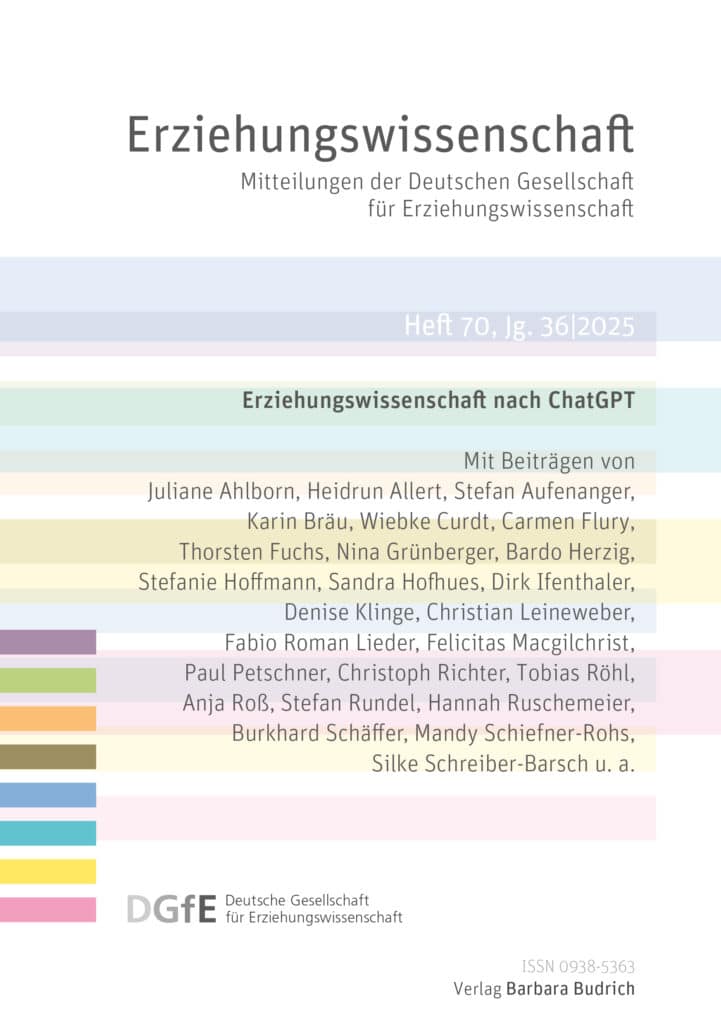


Bewertungen
Es gibt noch keine Bewertungen.